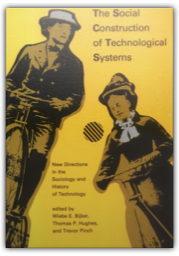
The impact of technology on society is clear and unmistakable. The influence of society on technology is more subtle. The 13 essays in this book draw on a wide array of case studies from cooking stoves to missile systems, from 15thÂcentury Portugal to today's AI labs - to outline an original research program based on a synthesis of ideas from the social studies of science and the history of technology. Together they affirm the need for a study of technology that gives equal weight to technical, social, economic, and political questions. 
Volume II is every bit as excellent as A-C, and as thought provoking. It's sad to have lost words like faunch (to rant, rage, or fret). The words form a picture of the country a century back, when folks stored their stuff in a hide-nasty (closet), and when they hifered (loitered) and someone asked what they were up to, they might say "Oh, I'm just helping Andy" (doing nothing). The lesson: If I faunch less and just put projects away in the hide-nasty, I can hifer more and take up the art of helping Andy. 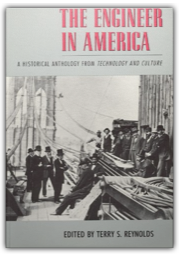
With some two million practitioners, engineers form one of America's largest professional groups; indeed, it is the single largest occupation of American males today. The rise of this profession and its place in American society provide the focus for this anthology. 
More than simply a cookbook, The Foxfire Book of Appalachian Cookerycombines unpretentious, delectable recipes with the wit and wisdom of those who have prepared and eaten such foods for generations. Drawn from the wealth of material gathered by Foxfire students, this engaging volume evokes the foodways of a southern Appalachian community. 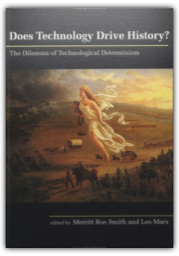
These thirteen essays explore a crucial historical question that has been notoriously hard to pin down: To what extent, and by what means, does a society's technology determine its political, social, economic, and cultural forms? |

Representationùthe production of meaning through language, discourse, and imageùoccupies a central place in current studies on culture. This broad-ranging text offers a comprehensive outline of how visual images, language, and discourse work as "systems of representation." The chapters explain a variety of approaches to representation, bringing to bear concepts from semiotic, discursive, psychoanalytic, anthropological, sociological, feminist, art-historical, and Foucauldian models of representation. The editors explore representation as a signifying practice in a rich diversity of social contexts and institutional sites, including the use of photography in the construction of national identity and culture; the poetics and politics of exhibiting other cultures in ethnographic museums; fantasies of the racialized other in popular media, film, and image; the construction of masculine identities in discourses of consumer culture and advertising; and the gendering of narratives in television soap operas. Representation analyzes contested and critical questions of meaning, truth, knowledge, and power in representation, and the relations between representation, pleasure, and fantasy. Accessible but not simplified, the book offers a unique perspective for teachers and students in cultural studies and related fields 
The Goffman Reader aims to bring the most complete collection of Erving Goffman's (1922-1982) writing and thinking as a sociologist. Among the most inventive, unique and individualistic of thinkers in American sociology, his works first appeared in the early 1950's at a time when a more formal, traditional sociology dominated the scene. In this collection, Goffman's work is arranged into four categories: the production of self, the confined self, the nature of social life, and the framing of experience. Through this arrangement, readers will not only be presented with Goffman's thinking in chronological order, but also with a framework of analysis that clearly introduces the social theoretical ideas by which Goffman shaped the direction of sociological thought through the late twentieth century. 
This is the proceedings of the TC13 flagship conference, held biannially. It reflects the state-of-the-art in HCI in 1997. It covers a broad range of the most important developments in HCI, focusing on international issues in: theory, interface tools and architecture, HCI applications and HCI development issues. 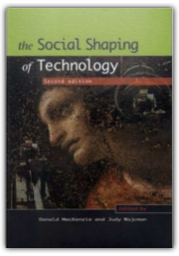
Reviews of the 1st Edition: 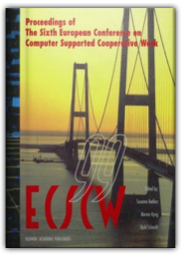
The emergence of network facilities and the increased availability of personal computer systems over the last decade has seen a growing interest in the use of computers to support cooperative work. This volume contains the proceedings of the sixth European Conference on Computer Supported Cooperative Work (CSCW), a multi-disciplinary area which embraces both the development of new technologies and an understanding of the relationship between technology and society. These proceedings present a collection of papers that encompass activities in the field, treating such subjects as virtual environments, uses of the Internet, studies of cooperative work and emerging models, studies of groupware systems in use in real-world settings, and theories and techniques to support the development of cooperative applications. The articles feature emerging technologies alongside new methods and approaches to the expansion of this important class of applications. Audience: This work reflects the best of the current research and practice within CSCW. It will appeal to both researchers and practitioners whose work involves computer and information science, human-computer interaction, information systems, hypermedia, organisational/social informatics and social studies of science and technology. |

My Library
Collection Total:
1165 Items
1165 Items
Last Updated:
Sep 9, 2009
Sep 9, 2009





 Made with Delicious Library
Made with Delicious Library